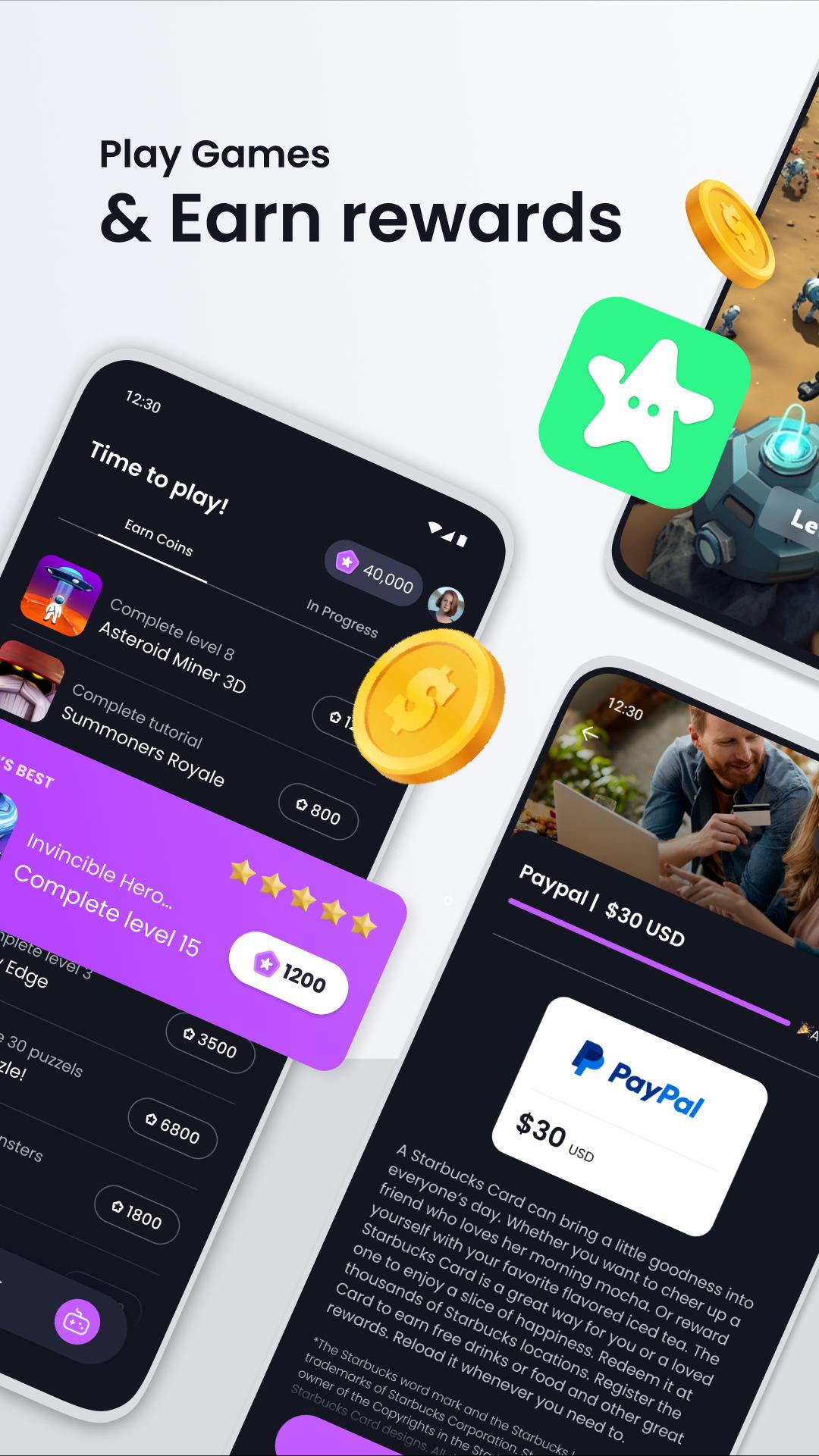Start earning today: play to earn rewards and capitalize on your gaming time
Start earning today: play to earn rewards and capitalize on your gaming time
Blog Article
Why Play-to-Earn Incentives Are Changing the Means You Play and Earn
The emergence of play-to-earn versions represents a remarkable shift in the gaming landscape, welcoming players to explore not only the home entertainment worth of video games however also their potential as income-generating systems. Understanding these characteristics raises relevant concerns concerning the future of pc gaming and the effects for both gamers and developers alike.
Introduction of Play-to-Earn Designs
Recently, the video gaming industry has observed a considerable makeover with the appearance of play-to-earn versions, fundamentally changing how gamers involve with digital environments. This ingenious strategy allows players to acquire concrete benefits via their in-game activities, developing a shift from standard pc gaming paradigms where enjoyment and competition were the key motivations.
Play-to-earn models utilize blockchain modern technology and non-fungible symbols (NFTs) to offer players with ownership of in-game possessions, which can be traded or cost real-world money. Therefore, players are incentivized to spend time and initiative into games, promoting a feeling of agency and monetary opportunity. play to earn rewards. This change has drawn in a varied player base, including those who might have previously viewed video gaming as a simply recreational task
Several systems have arised, showcasing successful applications of this model, such as Axie Infinity and Decentraland. These platforms have not only produced substantial earnings but also sparked conversations around the sustainability and principles of such financial systems. As play-to-earn models proceed to evolve, they guarantee to redefine the partnership in between gamers, programmers, and the broader digital economic situation, leading the way for a brand-new age in gaming.
Benefits for Players
As players engage with play-to-earn designs, they open an array of advantages that expand beyond plain home entertainment. Unlike typical pc gaming, where players spend time and cash without concrete returns, play-to-earn systems enable players to make copyright or in-game properties that can be transformed to real-world worth.
Additionally, play-to-earn models advertise area structure amongst players. Gamers usually work together to attain common objectives, thereby cultivating social connections that improve the overall experience. This feeling of community can cause cooperative gameplay, where players share approaches and sources, boosting both individual and team accomplishments.
Additionally, these models can equalize access to gaming by permitting players from varied economic backgrounds to profit economically. By taking part in play-to-earn communities, individuals can obtain abilities and knowledge about blockchain modern technology, additional widening their profession opportunities in the growing digital economy. Ultimately, the benefits for players expand well beyond gameplay, influencing their social, financial, and educational landscapes favorably.
Challenges in the Community
While the play-to-earn environment provides considerable possibilities, it is not without its difficulties. One major issue is the volatility of in-game currencies and properties, which can result in unpredictable profits for gamers. Changes in value can discourage prospective gamers that look for secure revenue streams - play to earn rewards. In addition, the complexities of blockchain technology might perplex individuals unknown with digital currencies, creating barriers to access.
One more obstacle is the danger of rip-offs and deceptive systems that can torment the environment. Players might come across misleading platforms assuring high benefits however eventually leading to monetary loss. Making certain depend on and security is crucial for the long-term feasibility of play-to-earn versions.
Moreover, the ecological impact of blockchain video gaming can not be ignored. The power intake connected with mining and transaction processing elevates honest inquiries concerning sustainability. Game designers should find an equilibrium between rewarding players and minimizing environmental footprints.
Lastly, the regulative landscape is still advancing, presenting possible dangers for developers and players alike. Uncertain lawful frameworks can prevent development and restrict the development of play-to-earn ecological communities. Addressing these difficulties is crucial for recognizing the complete possibility of this transformative gaming paradigm.
The Function of Blockchain Modern Technology
Blockchain innovation works as the foundation of the play-to-earn community, attending to most of the challenges formerly detailed. By using decentralized ledgers, blockchain guarantees transparency and protection in purchases. Players can with see this confidence gain and trade in-game assets, understanding that possession is verifiable and exempt to adjustment.

Tokenization of properties plays a crucial duty, granting players real ownership of their in-game things, which can be gotten, marketed, or traded on various industries. This urges a vivid Bonuses secondary market, where players can monetize their skills and time bought the video game.
Moreover, blockchain technology enables interoperability between different games and platforms, allowing players to carry their properties throughout numerous ecosystems. This adaptability not only enhances individual experience however also promotes a much more comprehensive pc gaming atmosphere, eventually improving the landscape of pc gaming and earning.
Future Trends in Video Gaming
The video gaming market is on the edge of a transformative evolution, driven by arising innovations and moving player assumptions. As play-to-earn models gain traction, players are increasingly looking for immersive experiences that blend enjoyment with substantial benefits. This change is triggering designers to introduce, concentrating on developing interesting gameplay that promotes neighborhood and communication.
One notable fad is the combination of digital fact (VIRTUAL REALITY) and augmented truth (AR), enhancing the gaming experience by providing deeper immersion and interactive environments. Furthermore, advancements in expert system are enabling more advanced non-player characters (NPCs) and adaptive gameplay, tailoring experiences to individual player preferences.

Final Thought
Finally, the play-to-earn model is considerably transforming the pc gaming landscape by making it possible for gamers to derive real-world value from their in-game tasks. This standard shift not only boosts player engagement and investment however additionally elevates difficulties that need to be addressed to ensure sustainability within the ecosystem. As blockchain technology remains to assist in possession of electronic assets, the future of pc gaming promises additional development and possibilities for players throughout diverse histories.
Report this page